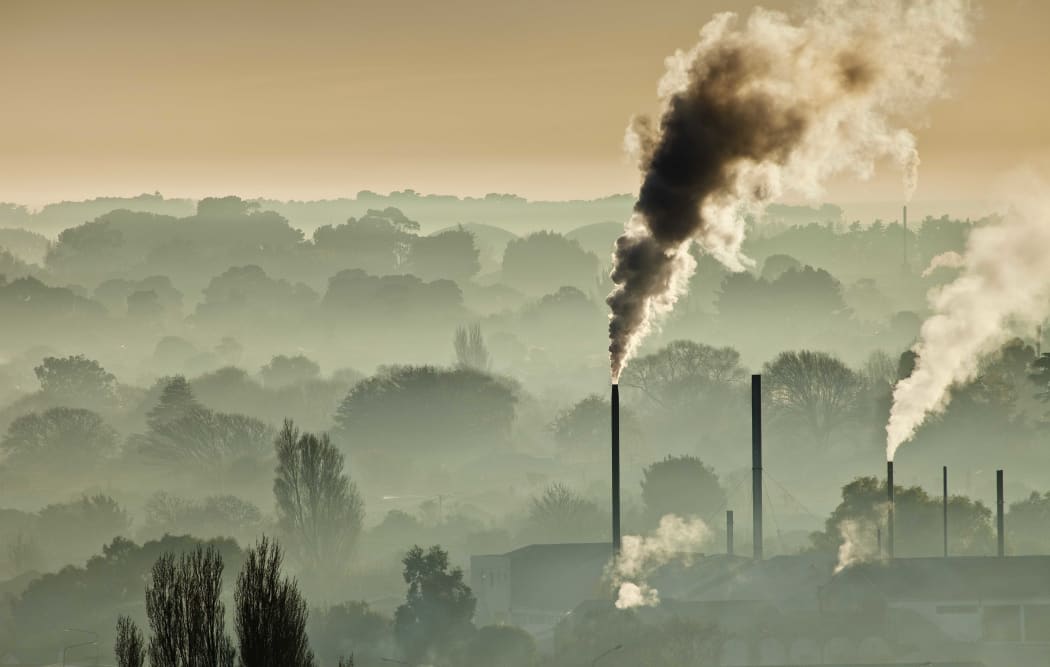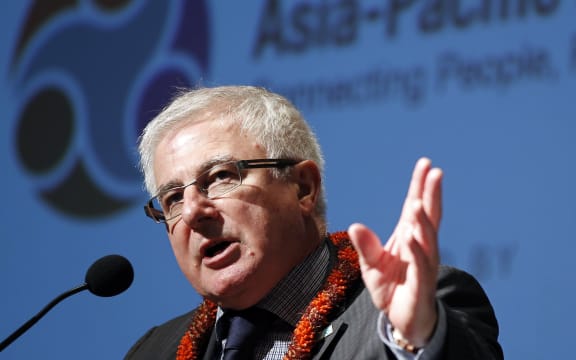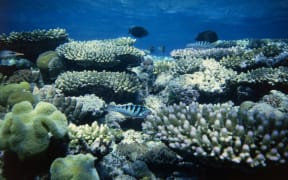New Zealanders will be hit by higher prices because of the Government's lack of action, the Green Party is warning in the wake of a stark warning by world scientists on climate change.
However, Climate Change Minister Tim Groser said New Zealand was doing its fair share.

Factory smoke and winter smog above Christchurch. IPCC scientists say emissions must be virtually eliminated. Photo: AFP
The latest United Nations' Intergovernmental Panel on Climate Change (IPCC) report released overnight said fossil fuel emissions have to be virtually eliminated by the end of this century to avoid irreversible damage.
Most of the world's electricity can, and must, be produced from low-carbon sources by 2050 or the world faces "severe, pervasive and irreversible" damage, it said.
The Green Party's Kennedy Graham said despite the Government's claims, New Zealand was not taking a measured approach to climate change.
"What they're doing is about imbalanced policy of putting short-term economic profit for selected New Zealand firms ahead of short-term ecological integrity.

Tim Groser Photo: REUTERS
"And if you ruin that short-term ecological integrity, you bet households and businesses are going to start paying for it between lets say 2015 and 2030."
But Mr Groser said the Government had to be mindful of the economic impact of cutting emissions too quickly.
"There are certainly some large companies like New Zealand Steel, Tiwai Point, that have real competitiveness issues that if you unleashed Green Party views on them they'd probably go out of business."
New Zealand was taking a balanced approach to climate change by playing its part while avoiding imposing excessive costs on households and businesses, he said.
The country was investing in international programmes to support global emission reductions and resilience to the impacts of climate change, and taking a leadership role in heading the Global Research Alliance on Agricultural Greenhouse Gases.
Mr Groser said the problem of climate change could be solved only by a concerted international response and a new international treaty was needed.
Sustainability Council spokesperson Simon Terry said the Emissions Trading Scheme (ETS), designed to reduce the country's emissions, was "certifiably useless" and needed to be scrapped if New Zealand wanted to meet its emission targets.
The government has a target of reducing its emissions target to 5 percent below 1990 levels by 2020 but current emission levels are 25 percent above 1990 levels.
"The Environment Ministry now projects that in 2020, gross emissions will be just 0.5 percent lower than if the Government had taken no action at all," Mr Terry said.
"So in its current configuration, the ETS is certifiably useless."
But Mr Groser blamed problems with the ETS on overseas influences, saying a 2013 World Bank survey showed only 7 percent of global emissions were covered by any sort of carbon price.
"The problem with the ETS is simply that global action on climate change has slowed down, the price has fallen, Australians have disestablished their scheme, Canada's walked out of the Kyoto Protocol," he said.
"I think on any relative basis, New Zealand's position is exactly what we said we would do, which is our fair share."




